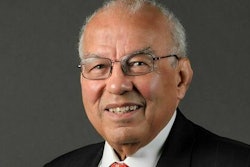The members of the Higher Ed Civil Rights Coalition have released a series of 10 policy briefs with specific recommendations to incorporate civil rights into higher education legislation and policy.
The coalition includes organizations such as the American Association of University Women, the National Urban League, the NAACP Legal Defense and Educational Fund, the National Education Association, the Southern Poverty Law Center, The Education Trust, UnidosUS, the Institute for Higher Education Policy, just to name a few.
 Liz King
Liz KingLast year, the coalition — convened by The Leadership Conference Education Fund and The Leadership Conference on Civil and Human Rights — released civil rights principles on which the briefs are based. The policy briefs, released under the heading “The Civil Rights Principles for Higher Education: Policy recommendations to achieve equity and protect civil rights,” seek to engage and educate diverse stakeholders and policymakers in pursuit of a higher education system that offers equal opportunity and success for all students, especially the historically marginalized.
“What we’re trying to communicate here is the way in which there is no one silver bullet,” said Liz King, director of education policy at The Leadership Conference on Civil and Human Rights. “We are looking to bring together a host of policies, which we think taken as a whole will really help to move our higher education system forward and ensure that it is effective and equitable and advances civil and human rights for the diverse student population we have today.”
The first principle calls for the robust implementation and enforcement of civil rights laws across all postsecondary institutions that accept federal funds.
“What we’re asking for is first and foremost, always, enforcement of our civil rights laws. Discrimination is unlawful, and we expect the Department of Education to enforce our nondiscrimination laws and hold campuses to account when there is discrimination,” King said.
Under a heading of access, the second principle calls for the removal of barriers to enrollment and the promotion of meaningful access to historically marginalized student groups, which include students of color, students with disabilities, students who have had contact with the justice system and others. The third principle calls for implementing comprehensive student supports with a goal of increasing student persistence and completion.
The fourth principle calls for making college affordable for low-income students and making sure student aid accounts for all of the financial obligations of students seeking higher education, including expenses like child care and housing. The fifth principle calls for the collection of higher ed data that gives students and families a complete profile of an institution, enabling them to make informed choices.
The sixth principle calls for the design of accountability systems that ensure students receive value for their higher education. The seventh principle calls for the exclusion of for-profit institutions from federal financial aid programs unless they can demonstrate their value to students through increased student earnings. The eighth principle calls for the protection of student loan borrowers from abusive and fraudulent practices.
“At this time when communities are under attack” from the Trump administration, “when we see this administration trying to take higher education opportunities away from people, to force people into exploitive situations that will burden them with debt and deny them a meaningful credential, we’re trying to say, ‘It’s time to be ambitious. It’s time to think about everything that is possible if we had an effective, equitable system of higher education that prepared our diverse workforce for the future,’” King said.
The ninth principle calls for the promotion of safe and inclusive campus climates free of harassment and violence. Beyond the enforcement role the Department of Education’s Office for Civil Rights plays, Congress should step up to the plate, said Nicole Dooley, senior policy counsel for the NAACP Legal Defense Fund.
“One primary purpose of the policy recommendations is that Congress really leans in to that responsibility to ensure that their protections are in place so students can feel safe and feel comfortable wherever they go,” Dooley said.
King also highlighted the responsibility of higher ed leaders to foster a campus climate that is welcoming and safe for vulnerable students.
“We also expect campus leaders to proactively seek out ways to create more welcoming campuses, whether that’s thinking about campus climate, whether that’s thinking about cultural competency for our counselors and for our faculty. Thinking about diverse faculty and the need to ensure that the faculty are reflective of the diverse student body who is being enrolled on these campuses.”
Added Dooley: “What we’d like to see is each of the principles — and there’s not one that’s more important than the other, they all are together in concert — included in a thoughtful and through manner in the reauthorization of the Higher Education Act.”
 Stephanie Román
Stephanie RománStephanie Román, senior policy analyst for policy and advocacy at UnidosUS, also highlighted the importance of addressing higher ed equity in the reauthorization of the Higher Education Act, noting that the HEA has not been updated in over a decade and “desperately needs a total update.”
“The Higher Education Act is at its core a civil rights act,” Román added. “We can’t, and we shouldn’t, in this process of updating the HEA, lose sight of how central the original HEA of 1965 was in terms of strengthening civil rights and equity for students to access and be successful in higher education.”
“I think these principles solidify that point that we have this once-in-a-decade opportunity to update the HEA, and as we go through that process we just can’t lose sight of how important maintaining civil rights protections and ensuring that students of color are not having unequitable outcomes, which they are now. Addressing those disparate outcomes needs to be a central part of this update of HEA.”
The final principle calls for investing in and supporting Historically Black colleges and universities and minority serving institutions.
“We are in a very difficult time where communities are experiencing unprecedented attacks from exactly those national leaders who are charged with protecting them and charged with representing their interests, ” King said. “But the response we have seen is deeply encouraging.”
“We are optimistic that we are going to be able to move this agenda forward, we’re going to be able to move forward the civil and human rights community’s priorities, and the priorities, the experiences and the knowledge of the civil and human rights community and of the marginalized communities that we represent will be heard in this debate about what our higher education system should look like,” King added.















